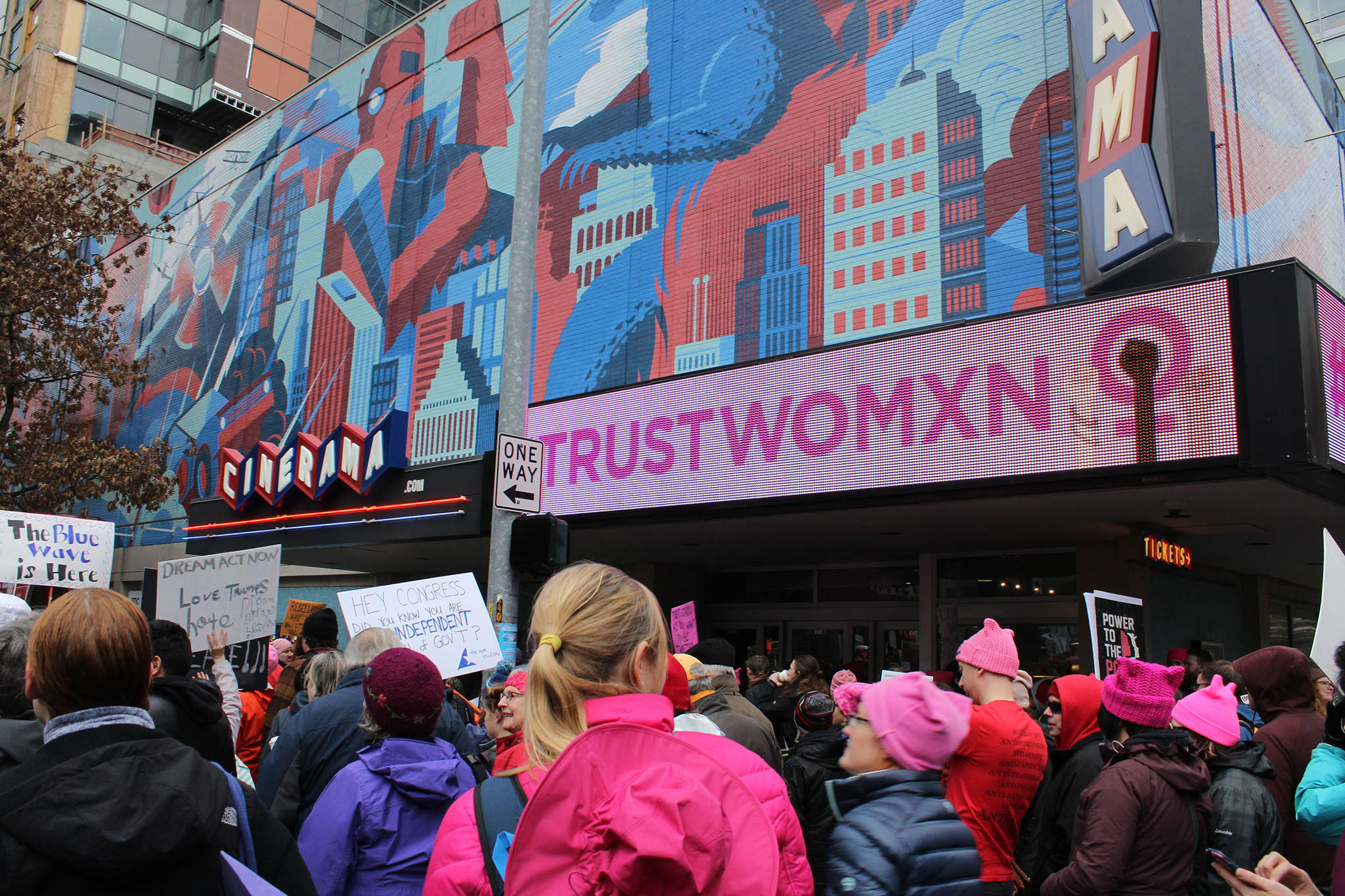On the one-year anniversary of Donald Trump’s inauguration as 45th president of the United States, tens of thousands of Puget Sound residents marched through the streets of downtown Seattle on Saturday as part of the second annual Seattle Women’s March.
Dressed in pink “pussy hats” and carrying handmade signs with phrases like “Equal rights, equal pay,” people of all ages marched from Cal Anderson Park to Seattle Center. The Women’s March began last year as a rallying cry for women’s rights, the LGBTQ community, immigrants, Black Lives Matter, climate change, and more. This year, the #MeToo movement dominated the march, with a plethora of handheld signs condemning sexual assault, workplace harassment, and societal double standards. Spread throughout the world via social media in late 2017, #MeToo seeks to encourage women to report crimes of sexual assault and harassment that have been committed against them, and to empower one another in a show of support.
Missing and Murdered Indigenous Women Washington led the march, followed by the American Muslim Community.
Sara Mohammed of the Muslim American Association of Puget Sound, who immigrated here from Saudi Arabia over 25 years ago, said that she was marching “to stand for all women.” Mohammed, who said that she has become “more socially active” over the past two years, was joined by her teenage daughter. “I’m here to pave the path for my children,” Mohammed stated, “I wanted this momentum to continue.”
Ten-year-old Evan Kimsey of Sammamish proved that there is no age limit on social and political activism. Evan marched with her mother, Sarah Hawes Kimsey, who helped to found Sammamish peace and tolerance activist group Plateaupians for Peace. “I came to march because it’s unfair that we get treated poorly … We don’t get paid as much and people think that they can just come up and touch us,” Evan said. “I’m not a thing in a museum.”
news@seattleweekly.com


